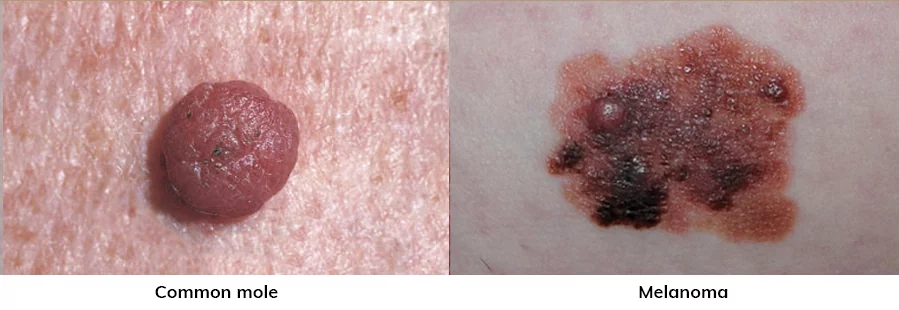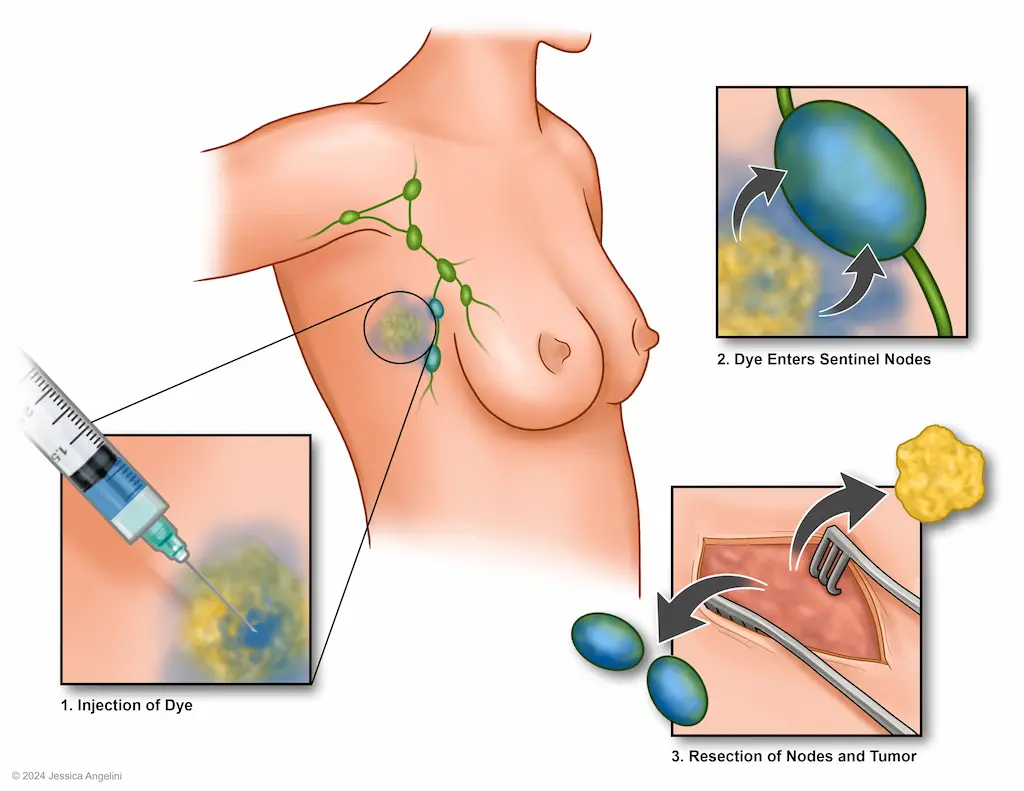
A sentinel node biopsy is a surgical procedure used to determine if cancer has spread beyond its original site to the nearby lymph nodes.
Melanoma is a type of skin cancer that develops in the cells that produce melanin, the pigment that gives skin its colour. It's the most serious type of skin cancer because it can spread quickly to other parts of the body if not caught early.
Dr Muzib Abdul-Razak is a highly skilled head and neck surgeon at Hills Surgical Oncology and specialises in the treatment of melanoma, particularly when it affects the head and neck region.

A sentinel node biopsy is a surgical procedure used to determine if cancer has spread beyond its original site to the nearby lymph nodes. The sentinel node is the first lymph node to which cancer is likely to spread from the primary tumour. Dr Muzib Abdul-Razak is experienced in performing sentinel node biopsies to both identify and remove any spreading cancer at Hills Surgical Oncology.
.webp)
Sentinel node biopsy is crucial in the management of melanoma for several reasons:
Not all melanoma patients need a sentinel node biopsy. It's typically recommended for:
Dr Muzib Abdul-Razak will carefully assess your individual case to determine if a sentinel node biopsy is necessary.
Preparing for a sentinel node biopsy involves several steps:
The team at Hills Surgical Oncology will provide you with detailed instructions to ensure you're fully prepared for your sentinel node biopsy.
A sentinel node biopsy is typically performed under general anaesthesia. Here's what you can expect:
The procedure usually takes about 1 to 2 hours.

After your sentinel node biopsy at Hills Surgical Oncology:
Recovery from a sentinel node biopsy is generally quick. Here's what you can expect:
1. Rest: Take it easy for the first day or two after the procedure.
2. Wound care: Keep the incision site clean and dry. Follow Dr Abdul-Razak's instructions for caring for the site.
3. Pain management: Take pain medication as prescribed if needed.
4. Return to activities: Most people can return to normal activities within a few days.
5. Follow-up care: Attend all scheduled follow-up appointments with Dr Abdul-Razak to discuss the results and any further treatment plans.
While sentinel node biopsy is generally safe, like all surgical procedures, it carries some risks. These may include:
Dr Muzib Abdul-Razak at Hills Surgical Oncology takes every precaution to minimise these risks and will discuss them with you in detail before the procedure.
The time it takes to get results can vary, but typically:
Dr Muzib Abdul-Razak will schedule a follow-up appointment to discuss the results with you as soon as they're available.
If cancer cells are found in the sentinel node:
Dr Muzib Abdul-Razak and the team at Hills Surgical Oncology will work closely with you to develop a comprehensive treatment plan tailored to your specific needs.
If no cancer cells are found in the sentinel node:
Sentinel node biopsy plays a significant role in determining the prognosis and treatment plan for melanoma patients:
While a negative sentinel node biopsy is a good sign, it doesn't guarantee that melanoma won't come back. Melanoma can sometimes recur locally or spread to other parts of the body. That's why ongoing follow-up care is crucial.
Dr Abdul-Razak will provide you with a tailored follow-up plan, which may include:
Early detection of any recurrence is key to successful treatment.
When dealing with melanoma, choosing the right medical team is crucial. Here's why Hills Surgical Oncology, led by Dr Muzib Abdul-Razak, is an excellent choice:
Melanoma is a serious form of skin cancer, but with early detection and appropriate treatment, many patients have excellent outcomes. Sentinel node biopsy is a crucial tool in the management of melanoma, providing valuable information to guide treatment decisions.
At Hills Surgical Oncology, Dr Muzib Abdul-Razak and his team are committed to providing expert, compassionate care to patients with melanoma. If you're in the Hills area, Norwest, Wahroonga, or anywhere in Sydney and have concerns about melanoma or need a sentinel node biopsy, don't hesitate to reach out.
Remember, when it comes to melanoma, early detection and treatment are key. Regular skin checks and prompt attention to any suspicious skin changes can make a significant difference in outcomes. We're here to provide the expert care you need throughout your melanoma journey.

Give our friendly receptionists a call on 1300 560 311 and they can help find a convenient time at all our locations. For urgent appointments, please let our receptionists know and we can try find the earliest time to see you.
Parathyroid surgery, or parathyroidectomy, involves removing one or more parathyroid glands to treat conditions like primary hyperparathyroidism.
A neck dissection is a surgical procedure to remove lymph nodes and surrounding tissue from the neck.